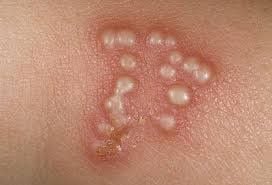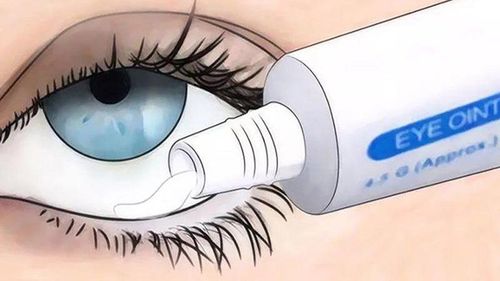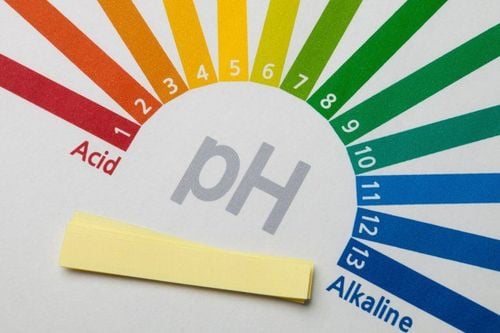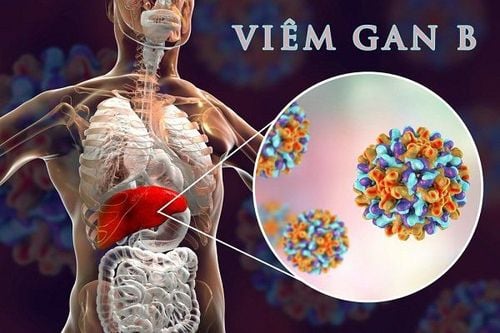This is an automatically translated article.
The article is professionally consulted by Master, Doctor Ta Quoc Ban - Department of Obstetrics and Gynecology - Vinmec Phu Quoc International General Hospital
Genital herpes is one of the most common sexually transmitted diseases. The disease can lead to serious complications when acquired such as meningitis, respiratory infections. However, many people still do not learn about the disease thoroughly and have not chosen effective prevention methods.
What is genital herpes?
Genital herpes is also known as genital herpes. It is a sexually transmitted disease caused by a virus called Herpes Simplex Virus (HSV). There are two types of HSV virus, including HSV1 and HSV2. HSV1 mainly causes genital herpes from the waist up area such as on the cheeks, lips, chest, or arms. HSV2 usually causes genital herpes on areas from the waist down, eg legs, genitals.There are many different causes of genital herpes , among them, having unprotected sex with an infected person is the main route of infection and development of the disease. Most people who engage in sexual activities that include vaginal, oral, and anal intercourse are at increased risk for genital herpes. Timely prevention and treatment will help you get rid of the serious effects of this disease on your health as well as your daily life. Here are 10 ways to reduce the risk of genital herpes that you should refer to.
1. Use a condom every time you have sex
A condom can protect you from the herpes virus if it covers the infected area.
2. Be honest with your partner about health issues
Most people with genital herpes don't know they're infected, so ask if the person has any other STIs. People with a history of STDs are more likely to get genital herpes.This is quite difficult and delicate, but you and your partner should be honest with each other. Your partner may want to hide the truth because they fear negative reactions from you. Therefore, you should give a straightforward answer when asked about this issue from your other half.
3. Ask your partner about their sexual past
Many studies have shown that people who have had or are having sex with many different people have a higher risk of getting herpes. Therefore, you should learn about your partner as well as their sexual history to help you make the right choices, avoiding the risk of transmission.4. Don't have sex with different people
The less sex you have with multiple people, the less likely you are to be exposed to the herpes virus. To protect the health of yourself and your partner, you should maintain a stable relationship and move on to a monogamous marriage later.
5. Don't have sex with someone with genital problems
If you find out that your partner is showing symptoms of genital herpes, it's best not to have sex with them. In addition, when you notice that your partner has genital pain, you should not have sex with them until you are sure they do not have herpes. Note that not everyone with genital herpes has obvious symptoms, and herpes sores can be difficult to spot.6. Don't talk to someone with a sore throat
Oral sex is a form of oral sex. Herpes nasopharynx can cause pain and blisters in the mouth. Besides, it can be spread to the genitals when two people have oral sex with each other.7. You should get tested for genital herpes
If you suspect your partner has a high chance of having genital herpes, you should advise them to see a doctor and get tested as soon as possible. Not only your partner, but you should also go to the doctor for a check-up and check-up for yourself.8. Don't have sex while intoxicated
Stimulants such as alcohol, or drugs will reduce your self-control and judgment. So find ways to keep yourself safe if you know you could get drunk during the fun. Normally, when we are drunk, we tend to indulge and not care about safe sex. This will make you regret after sober.
9. Limit relationships until marriage
The best way to help prevent STDs is to have only one sex partner. He or she will be free from sexually transmitted diseases and both are faithful to monogamy.10. Change the way you're close when you're in love
If you don't want to be single or be too strict with yourself about sex until you find a partner, you can reduce your risk of STIs by not having sex or having sex. mouth. In this case, mutual masturbation can be a reasonable option for couples.Vinmec International General Hospital currently has a package of examination and screening for social diseases to help customers detect diseases early for effective treatment and avoid complications. When registering for the Social Disease Screening Package, customers will receive:
Dermatology Specialist Tests Perform tests such as: HIV Ab rapid test, Chlamydia rapid test, Treponema pallidium rapid test, rapid test. Qualitative and quantitative Treponema pallidum TPHA assay, microscopic staining and microbiological examination of MS. Doctor Ta Quoc Ban is formerly a Lecturer in the Department of Obstetrics and Gynecology, University of Medicine and Pharmacy - Thai Nguyen University, Doctor of Obstetrics and Gynecology at Thai Nguyen Central General Hospital, Deputy Head of the Department of Obstetrics and Gynecology at the Hospital of Medical University. The doctor has full practice certificates in the field of obstetrics and gynecology such as: Ultrasound, laparoscopic surgery, endoscopic and electrocautery, artificial insemination (IUI)...
Experienced and qualified Strong in the following fields:
Obstetrics and Gynecology Ultrasound Laparoscopic surgery in gynecology Prenatal counseling Gynecological examination and consultation Infertility examination and consultation, implementation of sperm injection technique into the uterus , Pre-vaccination screening and handling post-vaccination reactions...
Please dial HOTLINE for more information or register for an appointment HERE. Download MyVinmec app to make appointments faster and to manage your bookings easily.
Reference source: Webmd.com













